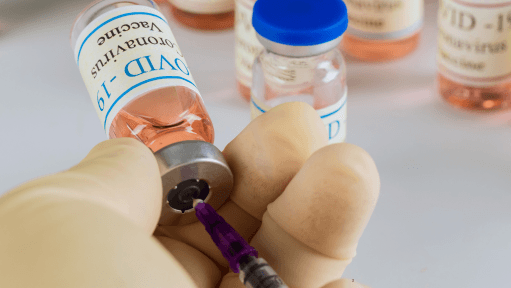
AstraZeneca's Admission of Covishield Risk Likely to Spark Legal Battles in India
Legal experts argue that a favourable outcome for claimants could initiate a landslide in lawsuits
Pharmaceutical giant AstraZeneca has legally acknowledged for the first time that its COVID-19 vaccine, under the global brand names Covishield and Vaxzevria, could trigger a rare adverse health condition.
The vaccine producer stated in court documents that the inoculation could occasionally induce Thrombosis with Thrombocytopenia Syndrome (TTS), a disorder resulting in blood clots and a reduced platelet count, as reported in The Telegraph. A class action lawsuit, on account of allegations that AstraZeneca's vaccine caused fatalities and critical injuries, is currently faced by the firm in the UK.
The vaccine has been developed by AstraZeneca in collaboration with the University of Oxford. In India, Covishield is manufactured by the Serum Institute of India (SII) under a licensing agreement with AstraZeneca.
SII has extensively distributed this vaccine in India. SII, however, has listed potential side effects of Covishield on its website's FAQs. These range from very common side effects like fatigue and nausea, to the rarest instances of major blood clotting in combination with low platelet count, observed in fewer than one in every 100,000 vaccinated individuals.
Implications for India
The AstraZeneca vaccine has been fundamental in India's Covid-19 fight, with over 174 crore doses administered by October 2023 as per Statista, a global data and business intelligence platform. This legal development holds significant implications for India, considering the extensive reliance on Covishield in the country's vaccination drive.
In terms of potential repercussions, medico-legal experts argue that a favourable outcome for the claimants could initiate a landslide in similar lawsuits, not just in the UK but worldwide. The verdict might also impact the vaccination drive globally, instilling hesitancy and skepticism among the public. For India, particularly, where Covishield was approved for emergency use in early 2021, and the drug regulator waived the vaccine’s trial mode, these developments could significantly impact public trust in the vaccine.
Alpana Srivastava, Partner at Desai & Diwanji, a law firm, expressed concerns about the situation in India. “India expedited Covishield, the AstraZeneca vaccine from Serum Institute of India, without full clinical trials due to emergency authorisation. Any news of potential side effects, even if rare, could damage public trust in the vaccine,” Srivastava noted.
With reports linking TTS to Covishield, Srivastava warned of potential legal action against AstraZeneca by affected individuals. “If many in India experience TTS post-Covishield and hold AstraZeneca accountable, a class action lawsuit could seek compensation for medical expenses and suffering,” she explained, citing the Consumer Protection Act, 2019 for legal recourse.
Srivastava also mentioned the possibility of a Public Interest Litigation (PIL) against India's drug regulator, questioning Covishield's approval given recent TTS concerns. “AstraZeneca may face liabilities as per CDSCO/Drugs and Cosmetics Act/DCGI policy,” she added. Globally, multiple regulatory authorities still maintain that the benefits of the AstraZeneca vaccine continue to outweigh the risks.
What is TTS?
TTS, or Vaccine-induced immune thrombotic thrombocytopenia (VITT), refers to blood clots accompanied by a decreased platelet count. This condition can impede blood flow in the affected vessel, as platelets play a crucial role in clot formation and preventing excessive bleeding. Researchers have established a connection between the AstraZeneca vaccine and VITT, which is considered a subset of TTS.
However, AstraZeneca's court documents do not appear to make this distinction. “TTS is a rare side effect of mRNA-based COVID vaccines. It is characterised by venous or arterial thrombosis, notably at unusual sites like cerebral sinus venous thrombosis (CSVT) or splanchnic thrombosis.
Symptoms typically appear 4 to 42 days after COVID-19 vaccination and include intense headache, abdominal pain, back pain, nausea, vomiting, vision changes, shortness of breath, leg pain, swelling, and bleeding,” said Dr Tushar Tayal, Lead Consultant, Department of Internal Medicine, CK Birla Hospital, Gurugram.
“The incidence may be as high as 10 per million vaccinated individuals. Blood tests often reveal low platelet counts and elevated d-dimer levels (that indicate potential blood clot formation or thrombosis in the body). TTS is a medical emergency with high mortality rates, requiring urgent medical attention,” he said.
This formal admission by the company is a critical development in the ongoing lawsuit and draws attention to the potential risks associated with vaccination. The instigator of the lawsuit, Jamie Scott, sustained permanent brain damage post receiving the AstraZeneca vaccine in April 2021.
Furthermore, in case AstraZeneca accepts the claim of vaccine-induced injuries or fatalities in specific instances, the legal acknowledgement could result in major compensation pay-outs. However, despite the admission, AstraZeneca challenges allegations of universal vaccine defects or overstatements of effectiveness.
In response to AstraZeneca's admittance, the Indian government is yet to make any official statement.
For any enquiries or information, contact ask@tlr.ae or call us on +971 52 644 3004. Follow The Law Reporters on WhatsApp Channels.